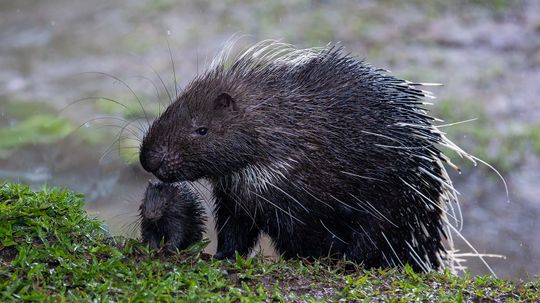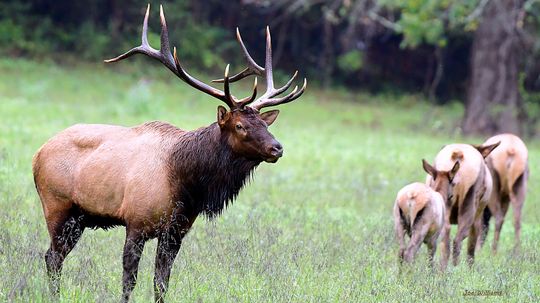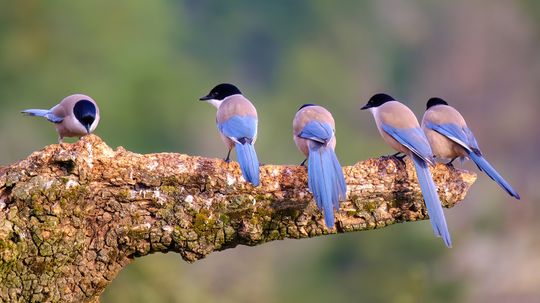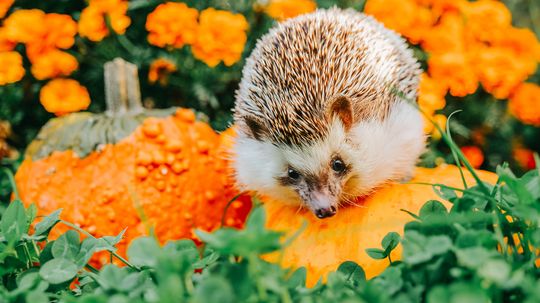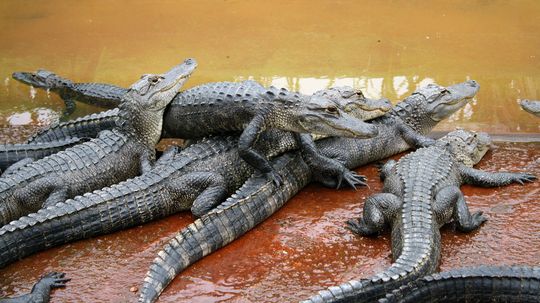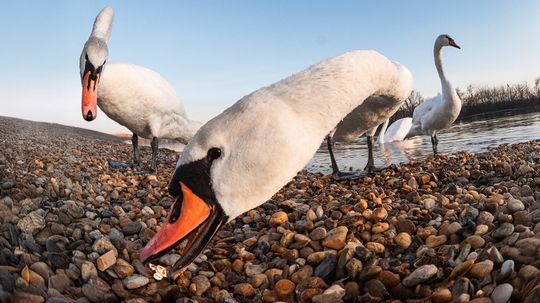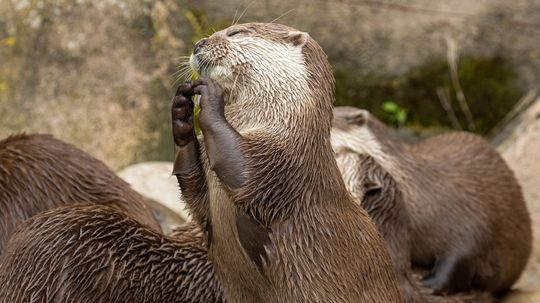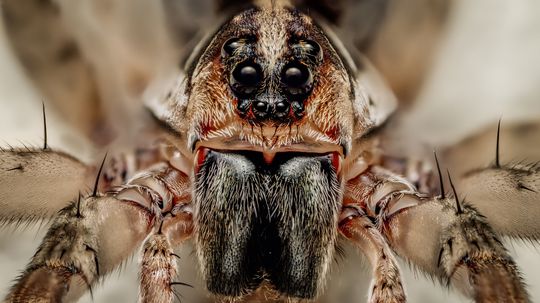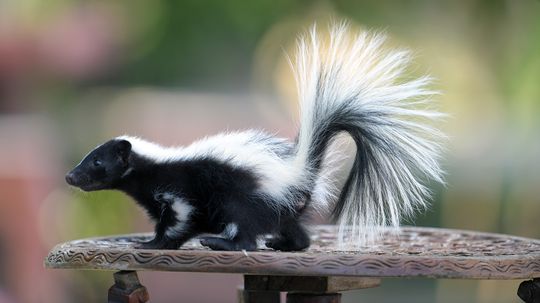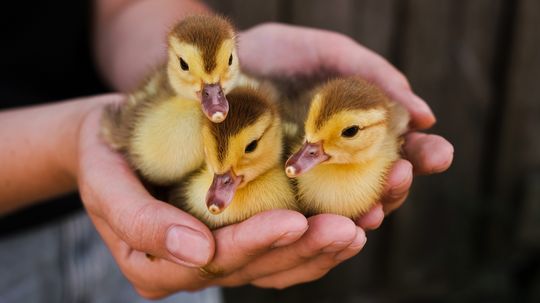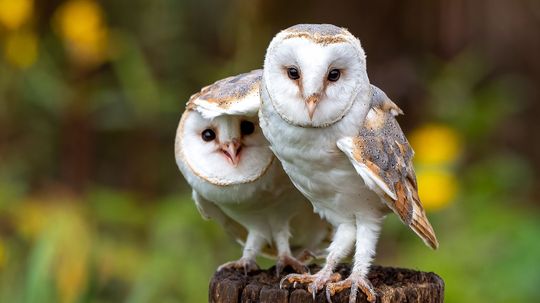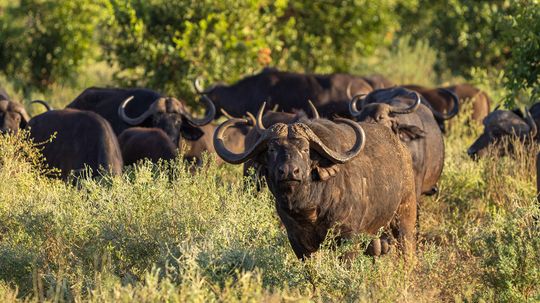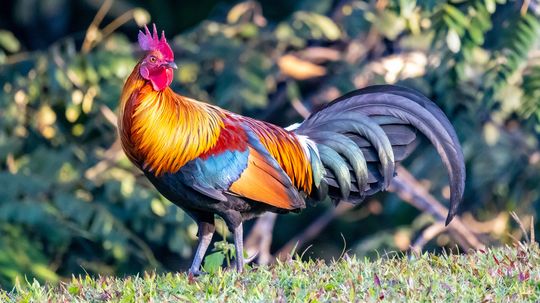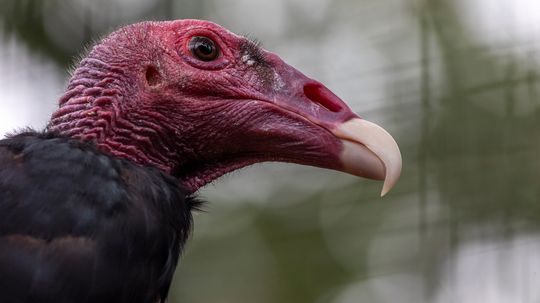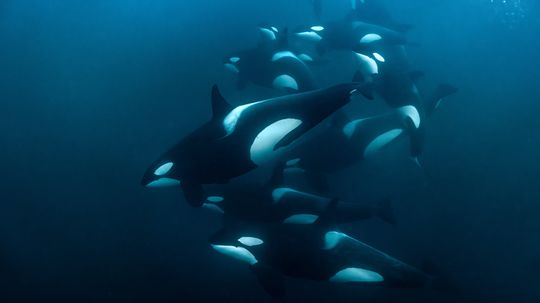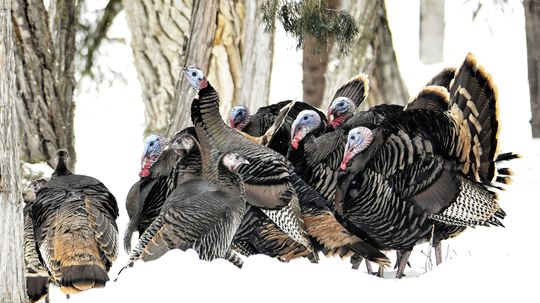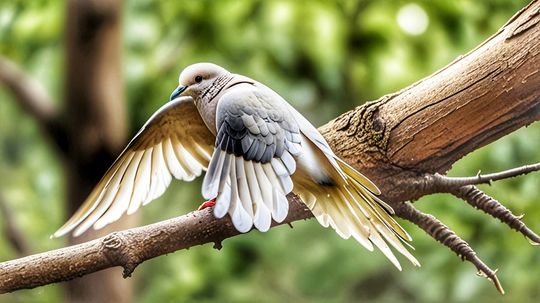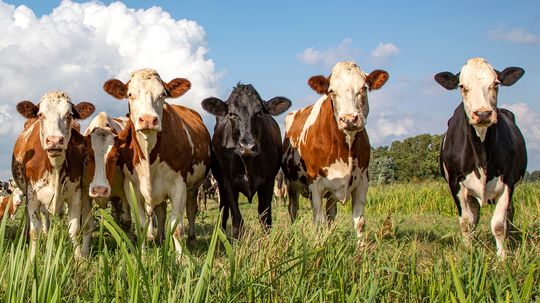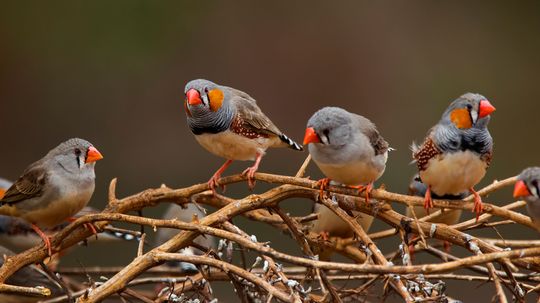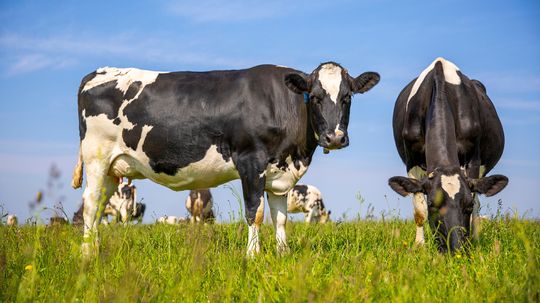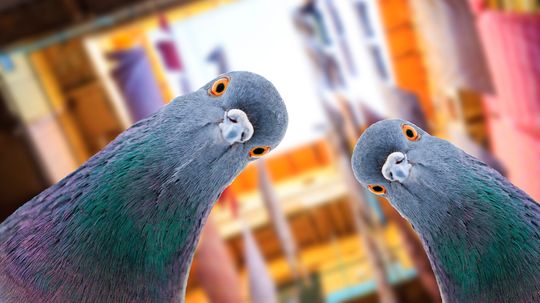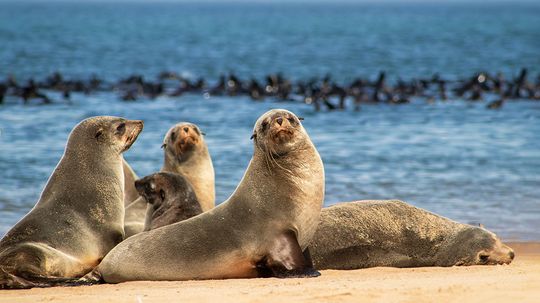Wild Animals
Whether they crawl, fly, swim, slither, walk, run or pounce, wild animals rely on their instincts. Read about all kinds of wild animals, mammals, birds, fish, insects, reptiles and amphibians.
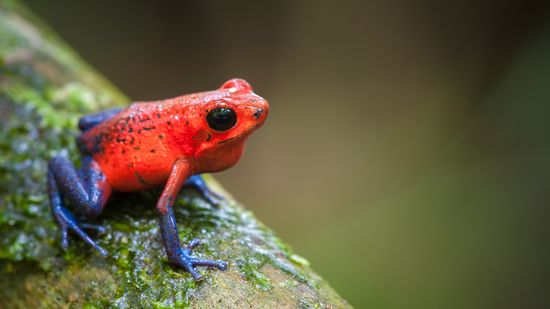
12 Colorful Frog Species: From Tie-dyed Designs to Rare Hues
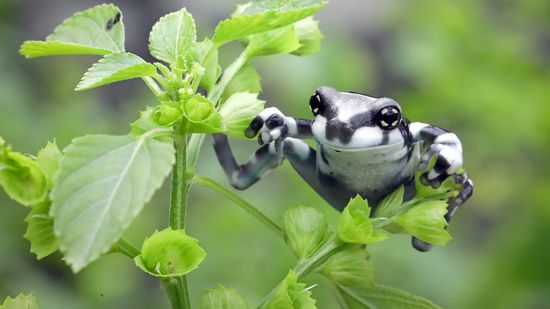
Amazon Milk Frog: Named for Its Defense, Not Its Color
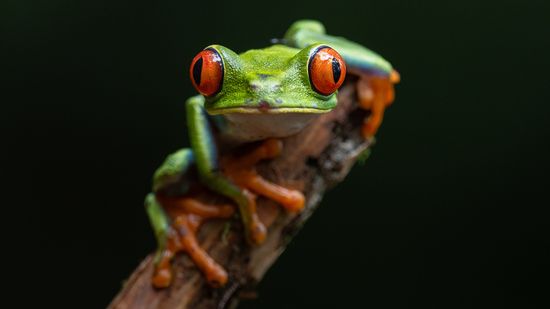
The Red-eyed Tree Frog Has Extremely Sensitive Skin
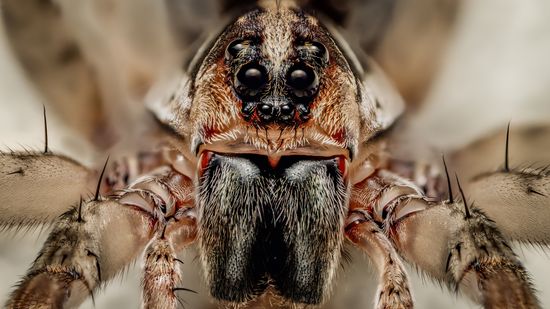
What Is a Group of Spiders Called? (Aside From Icky)
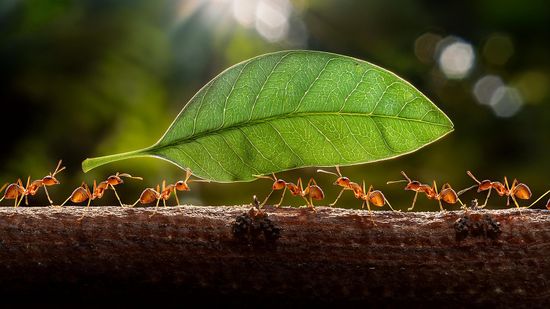
What Is a Group of Ants Called? Army vs. Colony vs. Swarm
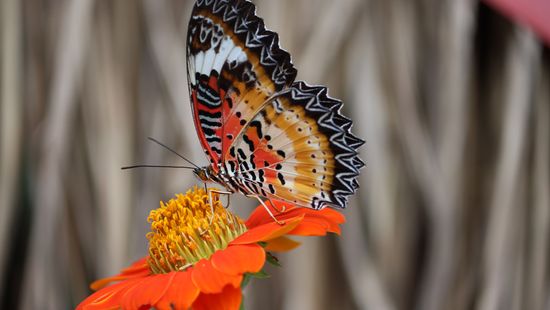
10 Red Butterfly Species Found From India to Florida to Europe
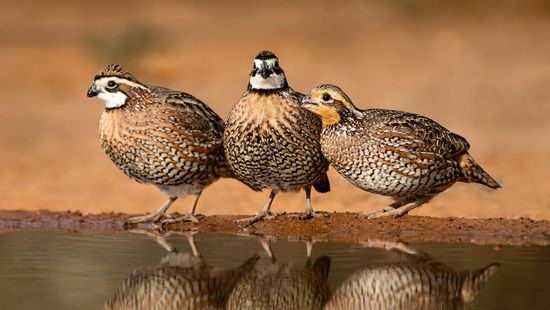
What Is a Group of Quail Called? Why You Should Give a Flock

What Is a Group of Hawks Called? It's About the Shape They Take in Flight
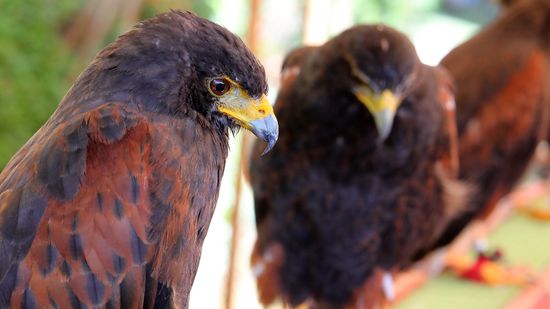
What Is a Group of Buzzards Called? Depends, Are They Feeding or Flying?
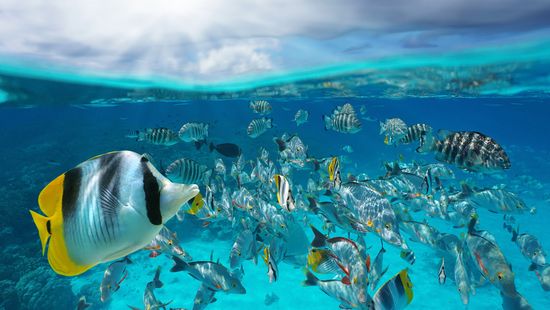
What Is a Group of Fish Called? Not Always a School
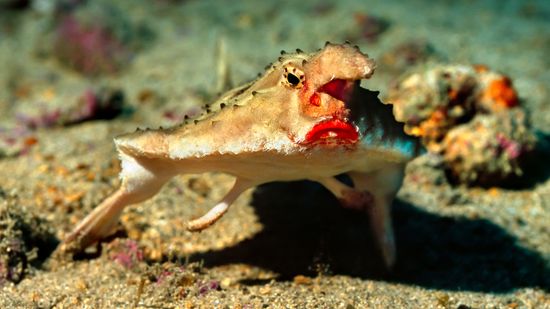
10 Weirdest Fish in the World: Batfish, Hairy Frogfish, and More
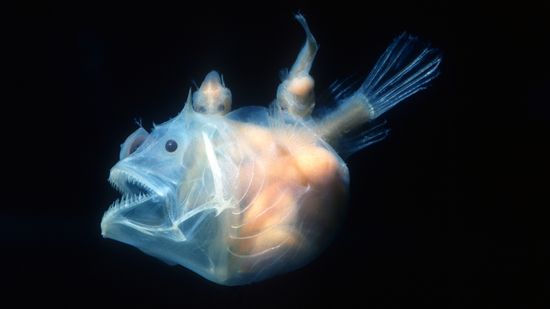
10 Scariest Fish Lurking in Rivers, Deep Ocean Waters, and Shells
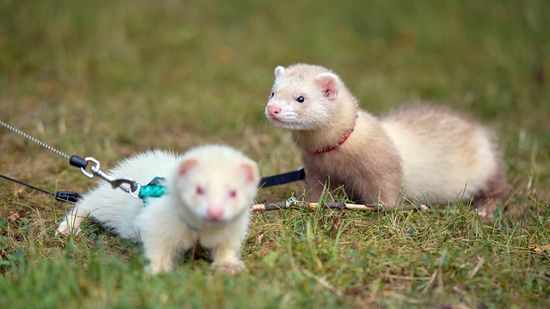
What Group of Animals Is Called a Business?
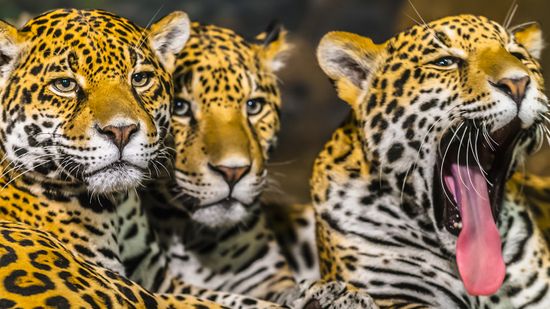
What Is a Group of Jaguars Called? Sounds Shady...
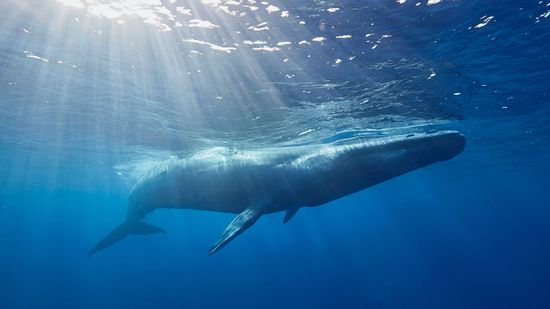
Why Are Blue Whales Going Silent?
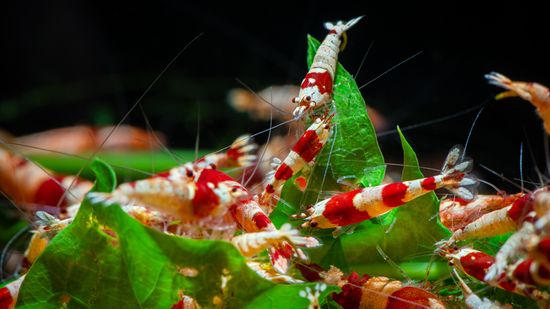
What Is a Group of Shrimp Called? (Hint: You'd Use the Term for Bugs)
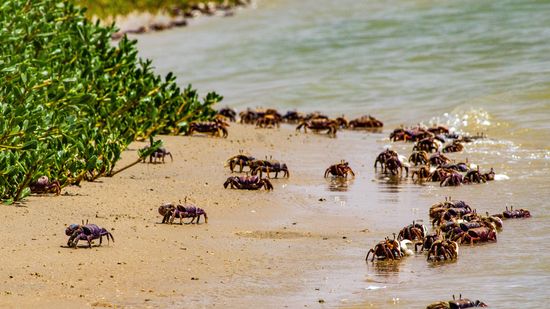
What Is a Group of Crabs Called? A Scuttle, a Clamor, a Cast?
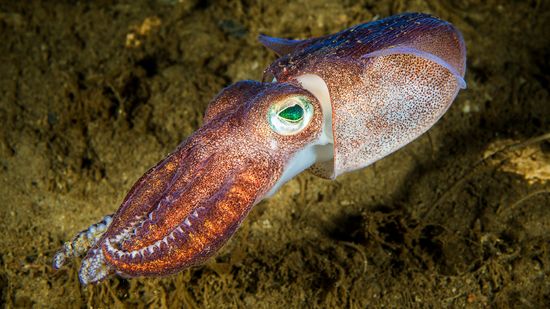
What Is a Group of Squid Called? Not a Squad, Unfortunately
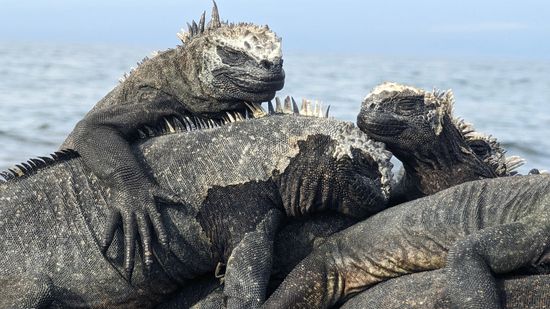
What Is a Group of Lizards Called? Not a Colony or a Pile but a...
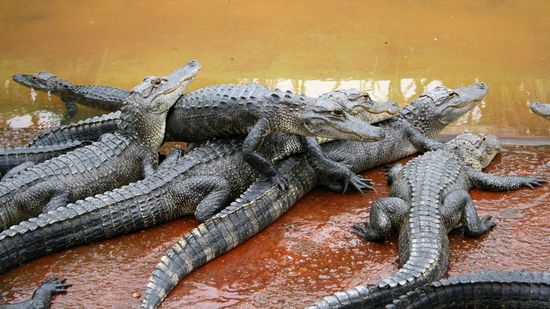
What Is a Group of Alligators Called? It Sounds Surprisingly Formal
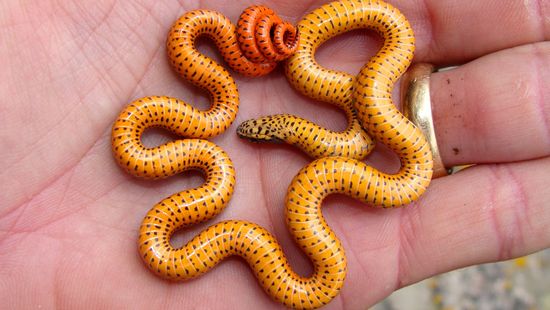
10 Cutest Snake Species That Have Us Squeeing
Learn More / Page 2
Porcupines are solitary animals with a sharp sense of style. If you’ve ever seen more than one hanging around a tree or crossing a trail, you may have wondered, what is a group of porcupines called?
By Nico Avelle
If you've seen a dozen elk grazing across a field or trotting past a fence line, you might have wondered, what is a group of elk called?
By Nico Avelle
If you have ever asked, "What is a group of magpies called," you are stepping into a long tradition of collective nouns used for birds.
By Nico Avelle
Advertisement
Hedgehogs usually live alone, so seeing more than one together feels special. When it happens, English gives that group a very specific word.
By Nico Avelle
If you have ever seen several gators piled together along a riverbank, you may have wondered, "What is a group of alligators called?"
By Nico Avelle
A group of swans goes by more than one name, and the right word depends on what the birds are doing. The question "what is a group of swans called" sounds simple, but English loves options, especially when birds get involved.
By Nico Avelle
Otters are found on every continent except Australia and Antarctica, sliding down muddy banks, cracking shellfish and floating on their backs. People often ask, "What is a group of otters called," because these animals spend so much time together.
By Nico Avelle
Advertisement
Spiders live in nearly every environment on Earth, from forests and wetlands to deserts and homes shared with humans. People often ask "what is a group of spiders called" because spotting many spiders together feels out of step with how these animals usually behave.
By Nico Avelle
Skunks wander through yards, forests and fields across North and South America, usually alone and minding their own business. Since they're largely loners, we wouldn't be surprised if you've never thought to ask, "What is a group of skunks called?"
By Nico Avelle
When you see a line of baby ducks waddling behind their mother, it’s more than just adorable. It’s a structured group with its own name!
By Nico Avelle
Birds may not hold government sessions, but in the world of collective nouns, they sure know how to form one.
By Nico Avelle
Advertisement
From the American prairie to the wetlands of Asia and the bush of Africa, buffalo are powerful and iconic animals. But when these creatures band together, what is a group of buffalo called?
By Nico Avelle
Ask someone where chickens come from, and you might hear "the farm" or maybe "the grocery store." But when someone asks, "Where do chickens originate from," they're looking for a deeper answer.
By Nico Avelle
If you've ever seen large birds circling high above or gathered near a carcass, you might have wondered, what is a group of turkey vultures called?
By Nico Avelle
You’ve probably seen them in documentaries or breaching the surface near Vancouver Island.
By Nico Avelle
Advertisement
You might spot them pecking along a trail, roosting in trees, or crossing a country road single file. When they're together, you may ask: What is a group of wild turkeys called?
By Nico Avelle
You’ve probably seen them rifling through trash cans or sneaking across your backyard at night. But when you spot more than one, you might wonder, what is a group of raccoons called?
By Nico Avelle
You’ve probably seen a group of birds take off in a sudden burst, but have you ever stopped to ask, what is a group of doves called?
By Nico Avelle
When you spot a bird of prey with sharp talons, a curved beak, and long, pointed wings built for speed, you may be looking at a falcon.
By Nico Avelle
Advertisement
If you’ve ever asked, "What is a group of cows called," you’re not alone. It’s a common question that dips into farming, linguistics, and a bit of trivia.
By Nico Avelle
If you've ever driven past a pasture dotted with woolly creatures and wondered, "What is a group of sheep called," you're not alone.
By Nico Avelle
If you've ever played trivia nights or read old literature, you may have stumbled on the question: What is a group of birds called?
By Nico Avelle
Where do cows originate from? Oh, so you're ready to dive into the natural history of one of humanity’s most important domesticated animals.
By Nico Avelle
Advertisement
Ever walked through a city square and seen a sky full of pigeons take off at once? You may have wondered, what is a group of pigeons called? Does it have a fancy name like a parliament of owls or a murder of crows?
By Nico Avelle
Ever see a bunch of seals lounging on the beach and wonder what to call them? Good news: You're not alone. By asking, "What is a group of seals called", you've walked into a long tradition of humans naming animal collectives in colorful ways.
By Nico Avelle
